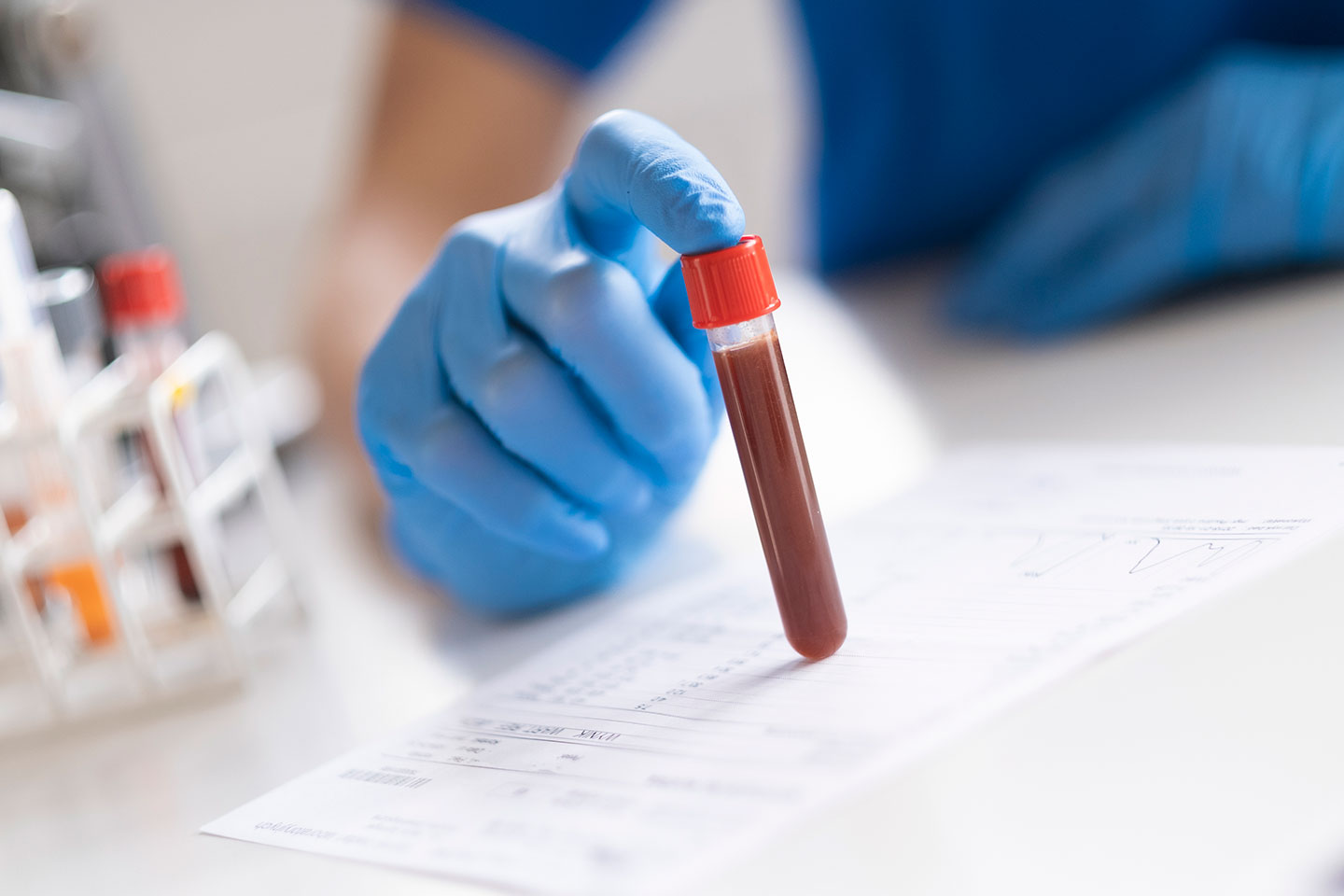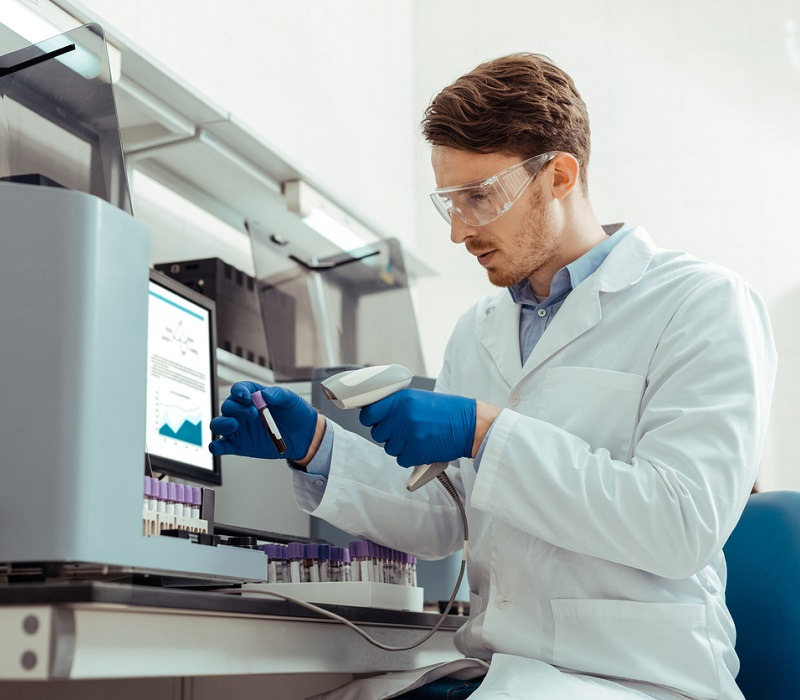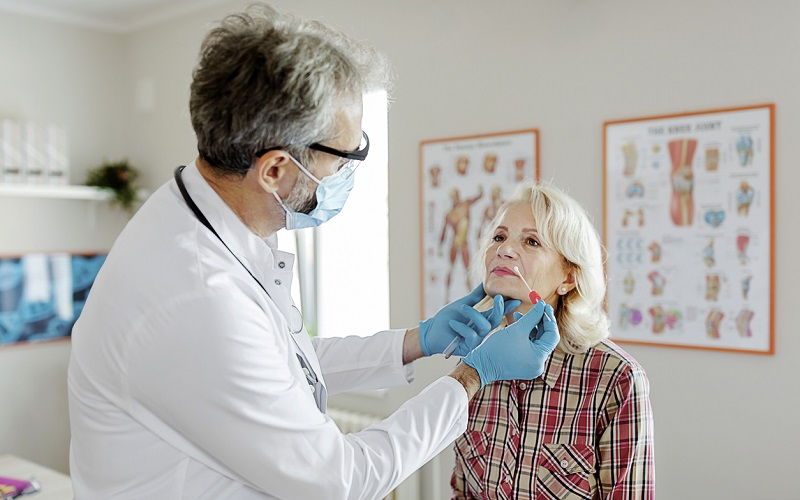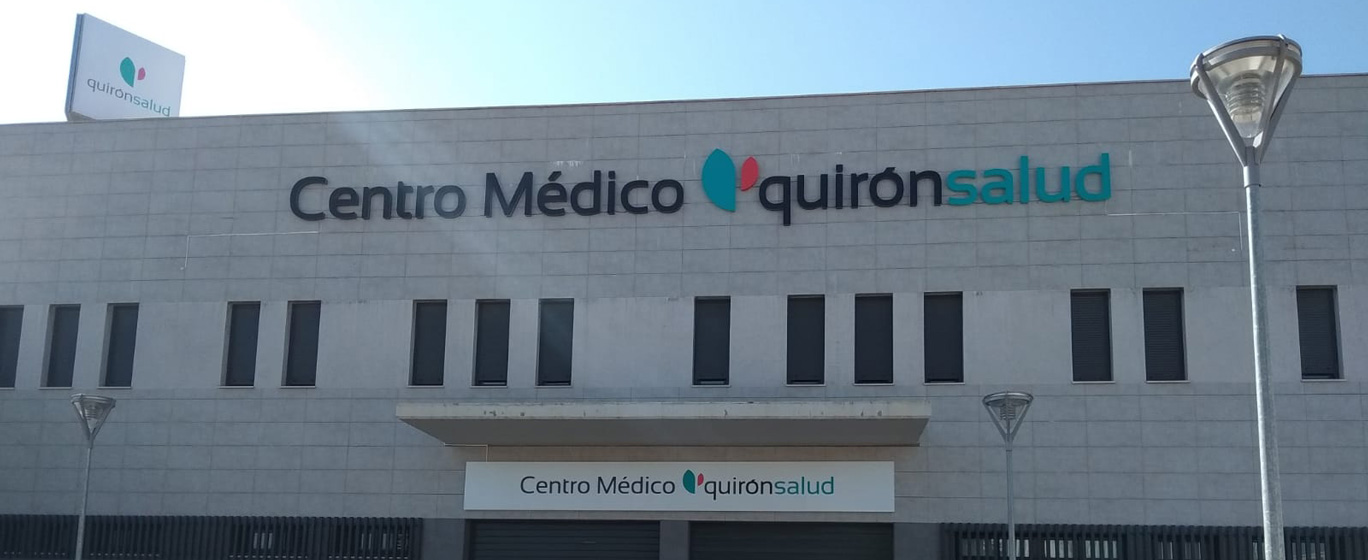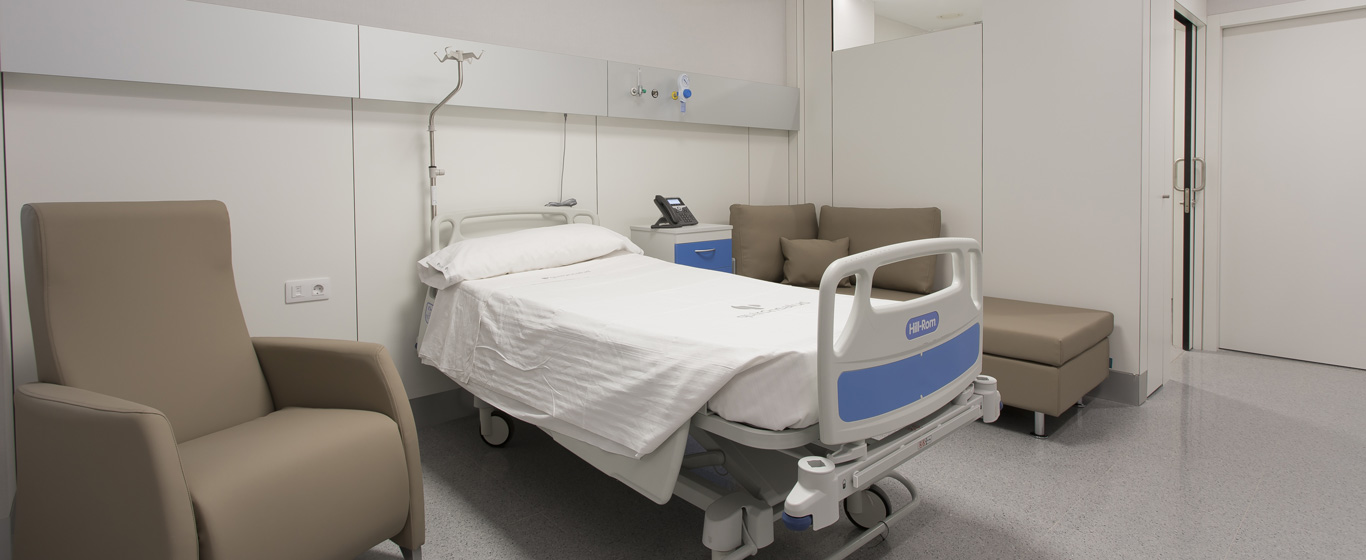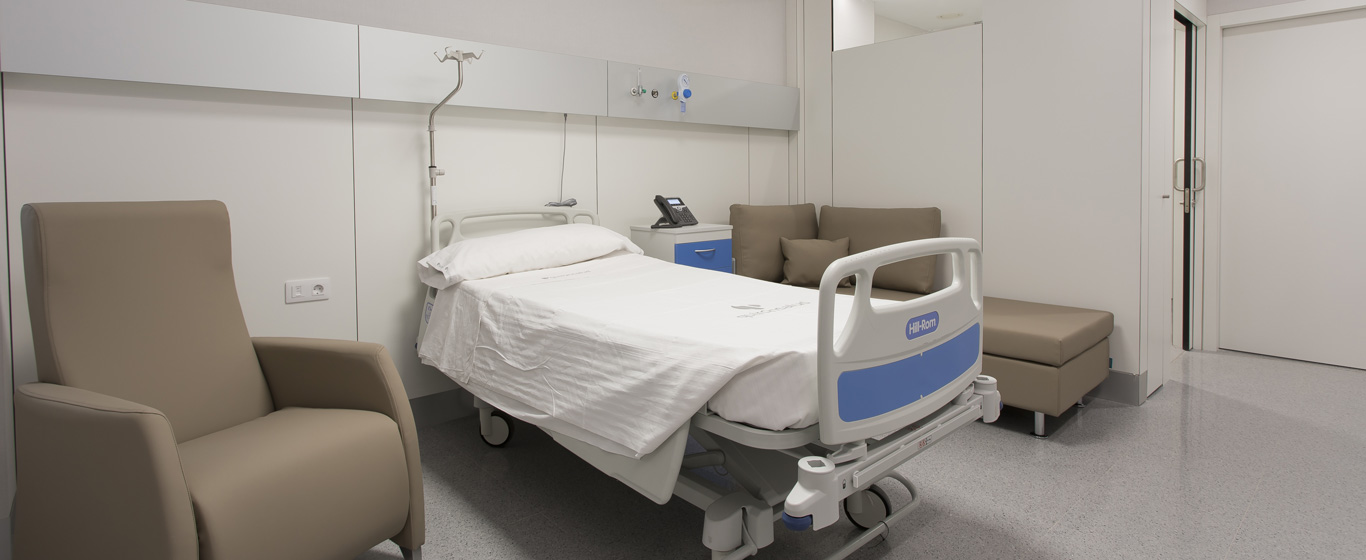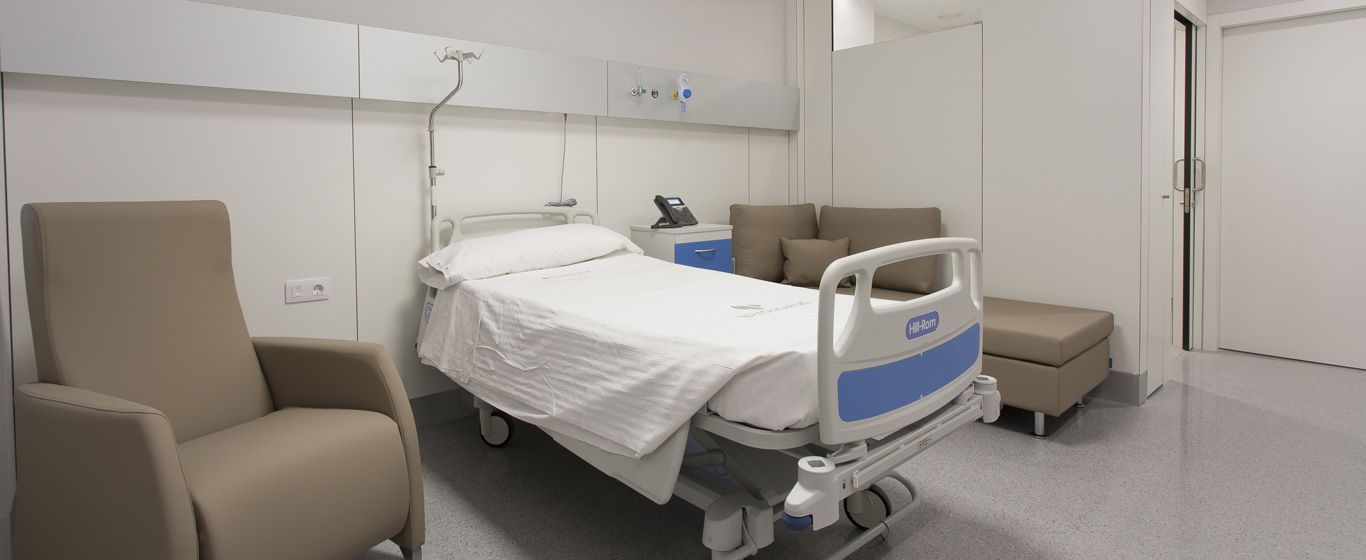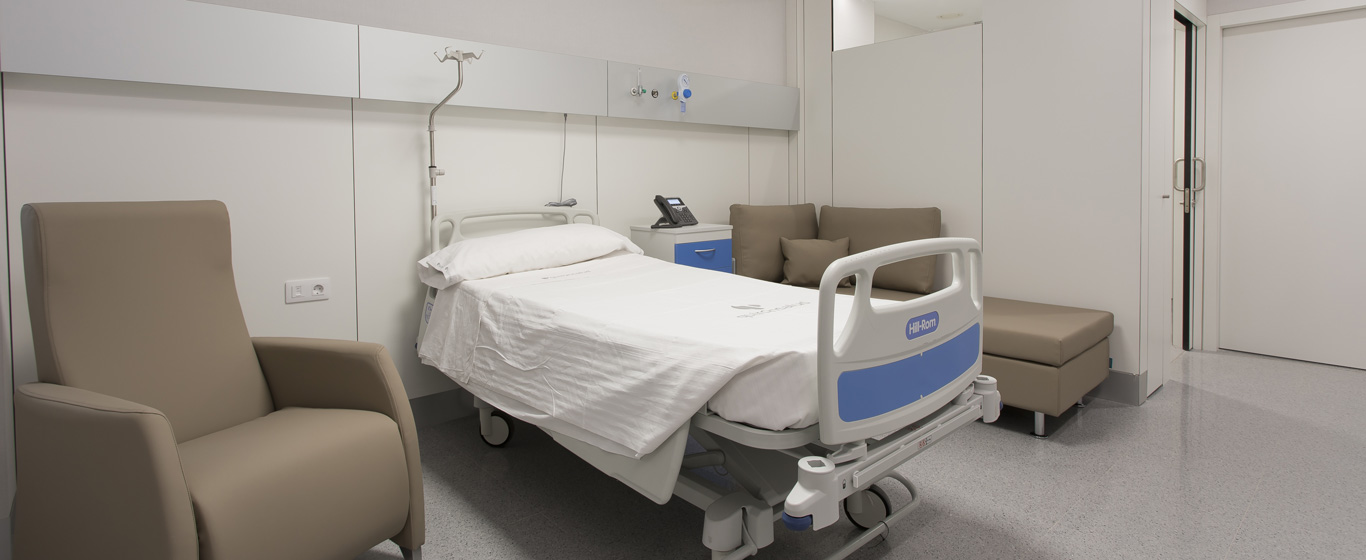Clinical analyses
We tell you everything you need to know about clinical analyses: what they are, what techniques are used and what tests are carried out. Book an appointment at the clinical laboratory of one of our hospitals.
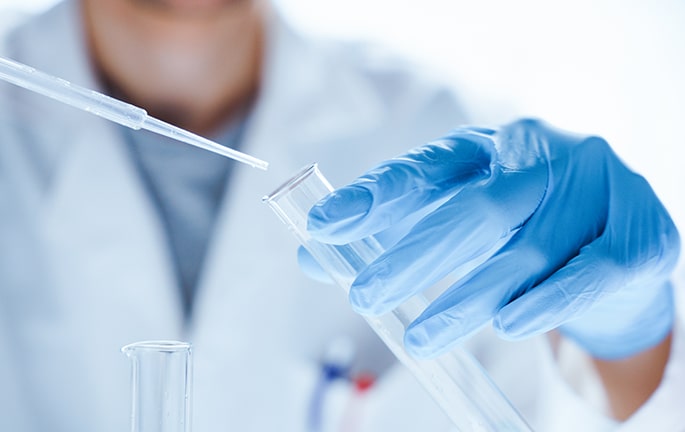
What are clinical analyses and clinical biochemistry?
Clinical analyses are a series of laboratory tests that allow us to know a person’s state of health, and also rule out or confirm any pathology. To carry them out, we study the components of the biological samples that have been taken, which can be blood, biological fluids, faeces, urine and tissues.
Clinical biochemistry is an area of pathology that approaches diseases from an analytical point of view and focuses on the chemical activity involved in human processes.
What do clinical analyses study/treat?
Clinical analyses focus on studying the chemical processes that affect people’s lives, both when they are healthy and when they have a disease. This medical speciality relies on analysis for diagnosis and prevention. Given the nature of these procedures, they also help monitor the course of certain pathologies, to check the efficacy of treatments, and to establish prognoses.
Clinical analyses can be divided into six main types, depending on the organs or functions to be examined:
- Biochemistry: includes the study of metabolic processes in relation to both physiological and pathological changes or those induced by therapeutic manoeuvres. It involves the application of the methods, techniques and procedures of analytical chemistry and biochemistry in order to obtain and participate in the interpretation of information useful for the prevention, diagnosis, prognosis and evolution of the disease, as well as the response to treatment.
- Haematology: focuses mainly on the study of blood and bone marrow components, as well as the diseases they may present.
- Genetics: focuses on tests that show alterations in genes (molecular biology) and chromosomes (cytogenetics).
- Immunology: studies the causes that sometimes lead to the immune system giving rise to the appearance of diseases.
- Microbiology and parasitology: the study of infectious diseases.
- Toxicology: deals with the adverse health effects of chemical agents and poisons.
Techniques, procedures and diagnostic methods
In recent years, the techniques used in clinical laboratories have evolved considerably. These advances, combined with greater specialisation of healthcare professionals, have made it possible to obtain more detailed information from the samples taken and, therefore, to arrive at more accurate diagnoses. Some of the most commonly used procedures in clinical analyses include:
- Microscopy: regardless of improvements, such as the use of molecular nucleic acid tests, observation through the microscope continues to be essential in certain laboratory areas, such as: body fluid cell counting, identification of blood and bone marrow cells, identification of microorganisms, semen analyses...
- Immunoassay: immunoassay is the set of immunochemical analytical laboratory techniques that have the common feature of using immune complexes, i.e. those resulting from the conjugation of antibodies and antigens, as reference data for the quantification of an analyte (substance to be analysed).
- Polymerase chain reaction (PCR): a laboratory technique that allows the rapid production (amplification) of millions to billions of a specific segment of DNA, which can then be studied in greater detail. One of its applications is in infectious disease detection, which helps to find a fragment of infectious genetic material in a sample.
- Electrophoresis: uses a current to separate certain molecules according to their size and electrical charge, e.g. proteins and nucleic acids. It is used in clinical laboratories to diagnose diseases or to monitor the progress of tumours.
- Flow cytometry: used to count and sort cells according to their morphology based on how they react to light.
- Mass spectrometry: This analytical technique enables the study of various compounds in nature, whether organic, inorganic or biological, and provides qualitative or quantitative information
- HPLC: HPLC (High-Performance Liquid Chromatography) is a technique for separating and quantifying the components of a mixture. It consists of a mobile phase (containing the sample) and a stationary phase (column). The separation is achieved by chemical interactions between the substances and the column.
- ICP-MS: Inductively Coupled Plasma Mass Spectrometry (ICP-MS) is a multi-elemental analysis technique that allows the determination and quantification of most of the elements of the periodic table at trace level in serum and urine samples.




